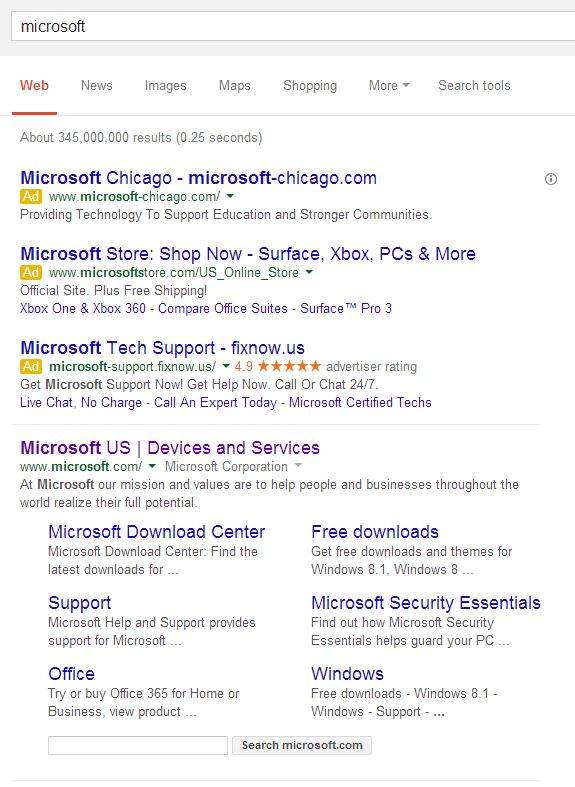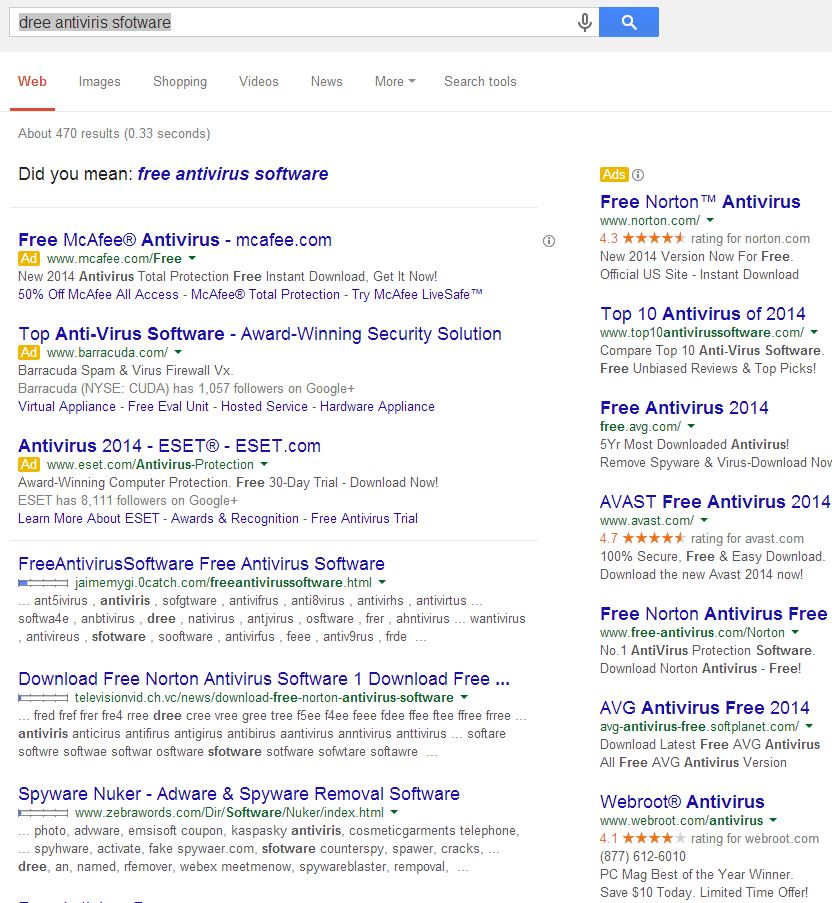Our last post examined a crucial aspect of online advertising: search engine marketing (SEM). We looked at the difference between organic (SEO) and paid search (PPC), and explained how the latter is a powerful tool for bringing visitors to your website. Finally, we outlined the structure of Google’s AdWords Program, one of the most popular paid search advertising tools available, and explained the different factors Google uses to determine how ads are displayed.
This week, we’re taking a deeper dive into our understanding of paid search and talking about the shortcomings of branded versus non-branded keywords, long-tail versus short-tail keywords, and mispellings [sic!]
To Brand Keywords or not to Brand Keywords? That is the Keyword Question.
Branded keywords are exactly what they sound like. When you type in words like “adobe” or “microsoft” into a search engine, you are literally searching with a branded keyword. Now it seems like an obvious suggestion that companies should bid on branded keywords related to their business, and, in fact, many do so. For example, search the term “microsoft” and you should see a number of ads leading to different parts of the Microsoft website above the organic search results.

But you have to ask yourself, what is the goal here? There are actually a number of different reasons you might want to bid on a branded keyword. The most obvious reason is to bid for your company’s brand and make sure that search engine users searching your company’s name see your ad and land on your company’s website.
But consider this: According to “Consumer Heterogeneity and Paid Search Effectiveness: A Large Scale Field Experiment,” brand keywords do not bring short-term benefits to well-known companies. Economists at eBay conducted a couple of controlled experiments where they first stopped bidding on branded keywords for the Bing and Yahoo search engines but kept them running on Google. Next, they tested the effect of non-branded keywords by shutting off non-branded paid search to 30 percent of U.S. traffic for 60 days.
Surprisingly, for both tests neither traffic nor sales decreased significantly during that period. The traffic and sales were instead captured through natural search results or direct navigation. This makes sense if a company has done its proper SEO. Their sites should be displaying at a high position in organic results for people searching their company name with branded keywords.
In the words of the report, “Shutting off paid ads closed one (costly) path to a company’s website but diverted traffic to natural search which is free to the advertiser.” It turns out that letting those visitors click on branded PPC ads is costly and wastes money. Interestingly enough, if you now search the keyword, “ebay” no PPC ads are displayed.
Search engine marketing has robust targeting capabilities. But costs rise with clicks, which can be bad if loyal customers and visitors are clicking on your ads even though they are already familiar with your brand and products.
Still, it’s important to note that the vast majority of independent software vendors do not have the name recognition of a company like eBay, and it may be in their best interest to bid on brand keywords for the curious and uninformed.
There are other benefits to bidding on your own branded keywords. The study indicated that branded keywords are wasteful only for frequent and longtime customers. However, paid search ads are helpful for signing up new customers and engaging infrequent ones.
The question you have to answer is whether you use PPC ads to direct traffic to your product pages and checkout process (that is navigational purposes), or do you use paid search to inform visitors about your brand.
Short Tail vs Long Tail Keywords
Short tail keywords are basic and generic. Advertisers from a diverse range of industries with a diverse range of budgets compete for keywords like, “antivirus”, which is why those keywords are so competitive. Costs can quickly rise for those wishing for a prominent position. The benefit of targeting a basic term like “antivirus” is that it has the potential to expose your site to a much wider audience than targeting a long tail keyphrase like “do you need antivirus software for mac”.
But how relevant is that short tail keyword traffic going to be for your business? If you’re selling antivirus software for Windows, do you really want to pay for the clicks of people looking for antivirus software for their Macs?
The benefit of targeting long tail keywords is that the specificity inherent in such a search term is more likely to bring you highly relevant traffic at a lower cost than a short tail keyword would bring. Also, as voice recognition technology advances, people will be querying full sentences and questions into their search engines. So, start thinking about what kind of long tail questions should result in bringing people to your site, and begin bidding for those phrases in an AdWords group.
Misspelled Keywords
People often come to search engines on a whim. Someone sys something about something and the listener’s idea bulb lights up. They turn to their preferred Internet connected device and type in a search query. But instead of typing in “free antivirus software” the device reads “dree antiviris sfotware”.
The benefit of targeting misspellings is precisely for capturing these types of search queries. As you can see from the image below, this is not just theory. Competitive brands understand that there are potential customers to capture with misspelled keywords.

Keystone
Investing in paid search advertising brings a lot of traffic to your site, but it all costs money. In order to make sure you’re getting the best ROI, test your branded and non-branded keywords and see if there is any drop-off in traffic or revenue, and target long-tail and misspelled keywords.